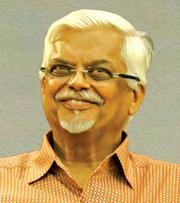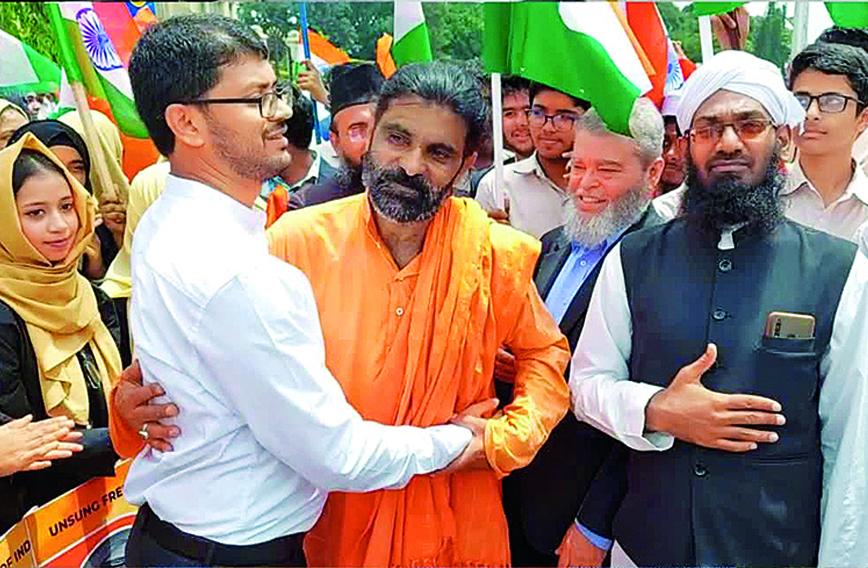
SANJAYA BARU
CIVIL society groups have always been engaged in mainstream politics in one way or another, albeit at its margins. Rarely have such groups been credited with making a difference to the outcome of elections to state legislatures. In the erstwhile united state of Andhra Pradesh I was witness over the years to the activism of civil society groups, popularly referred to as non-government organisations (NGOs) and to their eventual frustration in not being able to make a difference on an electoral platform. Mainstream political parties either ignored them or regarded them as hostile entities to unite and work against.
The recently concluded elections to the Karnataka state legislature have a different story to tell. Many commentators have pointed to the role played by at least two civil society groups, Eddelu Karnataka (Wake Up Karnataka) and Bahutva Karnataka (Pluralistic Karnataka). One commentator put it pithily stating, “Among the main reasons for the Congress party’s victory in Karnataka, was the boost it got from the social work of civil society organisations such as Eddelu Karnataka (Wake Up Karnataka) and Bahutva Karnataka (Pluralistic Karnataka).”
Eddelu Karnataka prepared a 25-page booklet titled ‘Four Years of BJP’s Rule: Disillusionment Due to Dead Promises’. For many social and political activists this became an important guide book giving them talking points in the campaign against BJP misrule. Eddelu Karnataka also organized dozens of conferences and discussions across the state and produced as many as 80 videos highlighting the failures of the Bommai government.
The other group, Bahutva Karnataka, refrained from making any party-specific suggestions to the audiences it addressed but vigorously campaigned against the state government for its failures on many fronts. It prepared what has been called ‘a report card’ on the Bommai government, analysing its performance across 15 areas, including agriculture, environment, labour, religious minorities, rural development, women’s rights, healthcare, and nutrition. In most of these sectors, the group claimed, “the BJP government has performed abysmally and we ensured that the reports were shared widely and received continuous media attention.”
The political awareness work of these groups was aided by the data generated by Eedina (Today) which, incidentally, conducted the most accurate pre-election survey that showed a clear Congress victory. More importantly, the Eedina survey showed the importance of economic and social factors in determining the electoral outcome, indicating that religion and caste are likely to be of marginal importance.
Taken together, the selfless activism of these civil society groups shaped the electoral outcome in Karnataka. The Bharatiya Janata Party (BJP) too mobilized what may be called ‘civil society groups’ in the form of various religious groups as well as the RSS to campaign on behalf of its candidates. If the latter focused on communal and sectarian grievances, the former focused on social and economic grievances. In the end, the voter showed that she was more concerned about livelihood issues than questions of faith and religious allegiance.
While political parties have their activists and campaigners who take party political propaganda to the voter, civil society groups can have a potentially greater impact if they are seen as selfless entities interested in societal benefit rather than a party political benefit. In other words, opposition politicians campaigning against the ruling party of the day may be viewed by the ordinary voter as self-serving, seeking power, while civil society groups are viewed as focusing on wider social benefit rather than party political gain.
The BJP has long argued that the RSS was one such organization that was not interested in political power but focused on national development and social improvement. This narrative was rarely questioned during the seven years of the Atal Bihari Vajpayee government (1998-2004) mainly because Prime Minister Vajpayee maintained a certain distance from the RSS. In fact, he had an adversarial relationship with the then RSS chief, Sudarshan, and often distanced himself from their views on policy.
Prime Minister Narendra Modi, on the other hand, removed this distance and quite happily allowed the RSS to play a direct role in the government. Several members of the Modi cabinet owe their ministerial positions to the RSS. In fact, several diplomats and senior officials also owe their positions to the RSS leadership. This direct interference of the RSS in BJP governments reduced its influence as a civil society organization.
The only mainstream political party that has in the past effectively used the social influence of civil society groups to extend its political influence has been the Communist party. It is this Communist party model that the Congress party used effectively during the tenure of the United Progressive Alliance government when Congress party president Sonia Gandhi created the National Advisory Council (NAC), giving representation to important voices from among civil society groups. However, with time, the effectiveness of this strategy got reduced and, in fact, backfired when many accused the NAC of interfering in the functioning of the Manmohan Singh government.
The experience of the RSS and NAC suggests that to be effective, civil society groups should maintain a critical distance from political parties in power, continuing to voice the interests of the community at large and not getting identified with any political party. While Eddelu Karnataka and Bahutva Karnataka can take legitimate pride from their positive contribution to the electoral outcome in Karnataka, their future effectiveness and credibility will depend on their remaining the sentinels of civil society rather than in becoming the handmaidens of people in power.
At least one reason why civil society groups have become politically more active and relevant has been the collapse of party organizations. Few political parties have an effective party organization. The moment a party wins an election, its key leaders vie for ministerial positions and consider organizational positions as worth nothing. In the past, in cadre-based parties, like the Communist parties, party leaders enjoyed more credibility and power than their ministers in government. With time that too has changed. Today Communist party chief ministers call the shots, not party general secretaries.
It is this weakness of party political organizations that has opened the space for civil society groups and in Karnataka they have played an important role in shaping the electoral outcome.
Sanjaya Baru is a writer and Distinguished Fellow at the United Service Institution of India.
Comments
-

amita - May 30, 2023, 11 a.m.
Civil Society organisations are already under severe attack despite their great contribution to the Nation. That they can play a role in awakening citizens is precisely what is sought to be ended and crushed under over scrutiny and over regulation, Income Tax Raids, ED, FCRA etc. That democracy itself would not be strengthened without a active civil society is well known. It is time that there is a "Ease of Doing Good" in the country than just a ease of doing business. The Non Profit sector, a important pillar of cicil society not only contributes 2 % to the GDP but also provides goods and services, intangible value addition and employment. High time their role was recognised and lauded not defamed or attacked!
-

sree - May 30, 2023, 10:30 a.m.
Karnataka elections were based on Freebees and cash in elections. In some constituencies, even gold coins were distributed. Every party exploited religious biases. This article has superficial view of the elections




